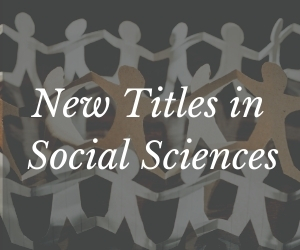System Upgrade on Tue, May 28th, 2024 at 2am (EDT)
Existing users will be able to log into the site and access content. However, E-commerce and registration of new users may not be available for up to 12 hours.For online purchase, please visit us again. Contact us at customercare@wspc.com for any enquiries.
New Humanism and Global Governance is the first in this subject to study how a variety of factors related to globalization will shape the future of the human community. It discusses the major challenges to today's world order and governance, as well as international experience in responding to these challenges. It covers a wide range of issues including unequal distribution of wealth, the widening income inequality gap, contradiction between economic development and environmental protection, the middle-income trap, de-globalization, democratic crisis, anti-immigration sentiments, nationalism, and radical extremism. It addresses these issues by emphasizing policy implications for governance.
The chapters are selected papers from two international conferences jointly held by the Institute of Public Policy(IPP) at the South China University of Technology and UNESCO. Contributors from China, Europe and the US present their questions, observations, and analyses in a narrative and descriptive style which appeal to a wide range of audience.
Sample Chapter(s)Introduction: New Humanism and Global Governance
Chapter 1: Sustainable Development and New Humanism
Contents:
- Theory and New Perspective:
- Sustainable Development and New Humanism (Hans d'Orville)
- New Humanism with Cultural Roots for the Anthropocene: A Confucian Perspective (Chenyang Li)
- The Impact of Political, Economic and Social Transitions on Order and Governance, Their Vulnerabilities and Predictabilities (Hans d'Orville)
- The Impact of Globalization on Political Order of Developed and Developing Countries (Mehri Madarshahi)
- Why Does Globalization Reverse? The Crisis of the Neoliberal Policy Paradigm (Bai Gao)
- Cultural, Knowledge and Gender:
- The Transformative Force of Culture in Sustainable Development: Innovative Approaches in Practice (Helene George)
- Governance, Knowledge and Crisis in the Developed World: The Use of Expertise in the 2008 Financial Meltdown (John L Campbell and John A Hall)
- Copreneurship and Sustainable Development in Small Family Firms Under the Transitional Economy of Taiwan (Yu-Hsia Lu)
- Trade, Market and Labor Force:
- Market, State and Development (Ramesh Thakur)
- Global Value Chains and New Thinking on Trade and Industrial Policy (Yuqing Xing)
- Deconstructing Informality: A Response to Vulnerability or an Optimal Choice? (Lina Song, Simon Appleton and Zhe Liang)
- Party, Governance and the Rule of Law:
- Governance in Post-Neoliberal Latin America: Lessons from Brazil, Peru, and Venezuela (Anthony Petros Spanakos)
- The Rule of Law, Market Order and China's Party-State System (Ning Wang)
- The Party, Governance and Rule of Law in China (Lance L P Gore)
Readership: General public interested in the social, political, economic and financial development of China.

























